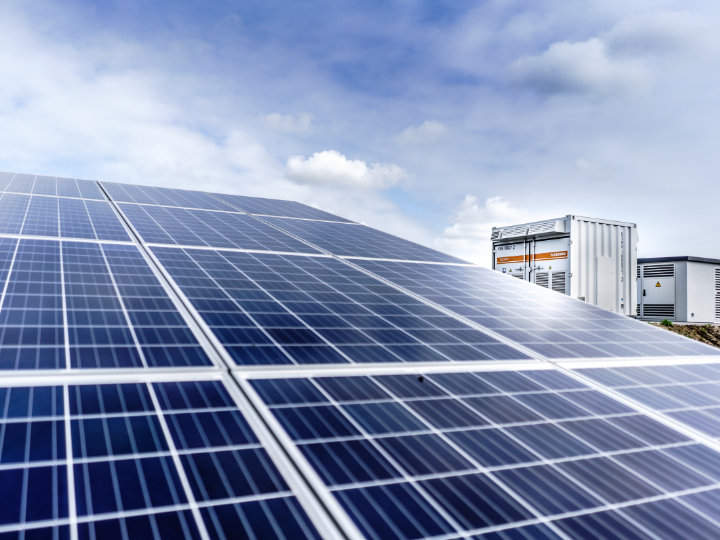by Nikolaus J. Kurmayer
Meyer Burger, the biggest producer of solar modules in Germany, has announced plans to close down and relocate to the US, fuelling political debates on whether the industry deserves long-term state support to ensure its survival.
Vice-Chancellor Robert Habeck’s plan to entice solar module manufacturers back onto German soil by offering generous state subsidies is faced with a dead-end.
Within the fractuous government coalition, the liberal FDP party is blocking plans to grant a “resilience bonus” to would-be manufacturers, amid a continued budget crisis caused by a ruling from Germany’s top court last month which blew a €60 billion hole in the country’s finances.
Now, the Swiss module producer Meyer Burger is threatening to relocate to the US entirely, putting 500 jobs at risk.
Following losses of about €133 million in 2023, “the company is preparing to close down module production in Germany”, Meyer Burger said in a statement on Wednesday (17 January).
Solar panels are mostly manufactured in China these days, but Germany is still home to some parts of the value chain. Polysilicon, for example, is produced by chemicals company WACKER in Saxony, a former communist state of East Germany.
“Poly”, as the industry calls it, is treated in various ways before companies like Meyer Burger assemble the modules at their site, which is also located in Saxony.
The region’s brand name? “Silicon Saxony”, a state where most of Germany’s microchip production facilities are also located.
Made in Germany
Saxony is alarmed by Meyer Burger’s plans to relocate.
“This announcement is a wake-up call,” said the state’s energy minister, Wolfram Gunther, adding: “We now need a quick decision in favour of a protected national market segment with resilience criteria.”
He wants a share of the German market to be reserved for modules “made in Germany”.
Meyer Burger, which claims technological leadership in manufacturing high-efficiency solar panels – although some media reports suggest otherwise – has blamed its woes on unfair foreign competition, like dumping.
“As long as the legislator does not create fair competition despite its announcements, we are preparing the restructuring in Germany,” said CEO Gunter Erfurt.
Their threat to close shop – far from the first one by the company – revives old fears in Germany, which lost much of its budding solar panel industry to Chinese competition in the late noughties.
Meyer Burger’s announcement comes as the German government struggles to provide sufficient state support to retain domestic production.
“We are in talks with Meyer Burger, and we are very aware of the difficult situation of this company and the PV industry in Germany,” a government spokesperson said on Wednesday.
The company set a deadline for “the second half of February 2024” and called for “resilience measures” to secure production in Germany.
Net-zero industry act
Germany’s woes with solar PV manufacturing come as Europe debates its own industrial policy law, the Net-Zero Industry Act.
The proposed law aims aims to support production in Europe of technologies seen as essential to achieve climate neutrality, like solar panels, wind turbines and heat pumps.
Negotiations to conclude the law are now entering the final stages in Brussels after EU member states and the European Parliament both adopted their respective positions.
In those talks, Germany supports the introduction of “resilience tenders in the PV sector to strengthen production in Europe through resilience criteria in the context of tenders for renewable energies,” a spokesperson of the economy ministry told Euractiv.
“Our aim is to produce a significant proportion of the necessary transformation technologies in Germany and Europe,” the spokesperson added.
Economy Minister Robert Habeck, and the social democrats (SPD) who lead the government, typically favour “resilience” subsidies to keep industry around, whilst the liberal-minded FDP is opposed.
Konrad Stockmeier, an FDP MP who speaks for the party in matters of energy, said these subsidies make “the energy transition more costly, at the expense of taxpayers”. Why build your own when you can import cheap products from China or India, the argument goes.
Meanwhile, the German renewable energy federation (BEE) is calling for a quick decision as well.
“In order to strengthen the resilience of our energy supply, it is essential to build up our own production capacities or rebuild lost capacities,” said Simone Peter, president of the BEE, in late 2023.
For the solar industry, that means “clear financial commitments” to “counteract” schemes “from the USA and Asian offensives and to build up a resilience segment,” she stressed.
A package designed to aid the solar industry is currently being discussed in the German parliament. Discussions should close on 21 February, internal documents seen by Euractiv show.
*first published in: Euractiv.com




 By: N. Peter Kramer
By: N. Peter Kramer
